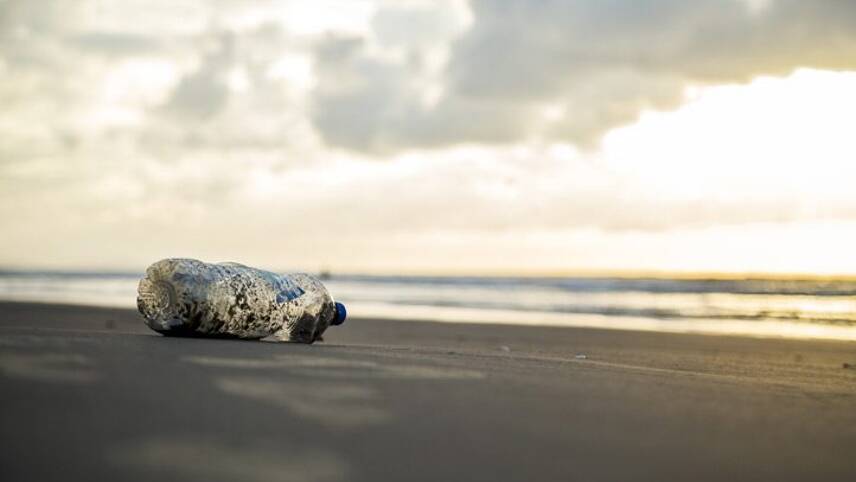Register for free and continue reading
Join our growing army of changemakers and get unlimited access to our premium content

This is according to a peer-reviewed study which devised a framework to link brands to producers and applied it to five years of Break Free From Plastic (BFFP) Brand Audit data, hypothesising a linear relationship between plastic production and pollution.
The team collected and surveyed more than 1,870,000 items of plastic waste across 84 countries. The highest number of audits were conducted in Indonesia, the US, Tanzania, Thailand, Malaysia and Democratic Republic of Congo.
Nearly half of the plastic waste was unbranded and could not be traced, underscoring the importance of mandated producer reporting. However, only 56 multinational consumer goods companies were accountable for the branded portion of plastic pollution, with six companies contributing a quarter of that.
These top brands include Coca-Cola Company (11%), PepsiCo (5%), Nestlé (3%), Danone (3%), Altria and Philip Morris International (2%).
It bears that the study is not referring to virgin plastic feedstock production but rather the production of branded plastic products.
edie contacted Coca-Cola Company, Altria, PepsiCo, Nestlé and Danone for a response to the research findings.
A spokesperson for Coca-Cola Great Britain said: “We care about the impact of every drink we sell and we’re working to reduce the amount of plastic packaging we use. We have an ambitious goal to collect and recycle a bottle or can for each one we sell by 2030.”
Companies have highlighted the existence of “systemic barriers” to reducing plastic pollution, while advocating for a legally binding Global Plastics Treaty.
Often referred to as the ‘Paris Agreement for plastics’, the UN Global Plastic Treaty aims to reduce the absolute level of plastics production globally, with a focus on the materials that pose the most risk to the environment and public health. It will also require nations to improve waste management.
The penultimate round of negotiations for the UN Global Plastic Treaty is happening this week in Ottawa, but WWF has cautioned that a few vocal opponents could potentially obstruct progress, making this round crucial for the treaty’s outcome.
A spokesperson for PepsiCo said: “We have made significant investments for more than a decade aiming to reduce the packaging we use, scale reusable models, and partner to further develop collection and recycling systems.
“As a member of the Business Coalition for a Global Plastic Treaty, we advocate for an ambitious and binding global policy framework to help address plastic pollution and we urge others to seize the opportunity to do the same.”
A spokesperson for Nestlé said: “Plastic pollution is a serious issue and one that we are working hard to help address. We have reduced in the last five years our new (virgin) plastic usage by 14.9%.
“We support a global legally binding regulation on plastic pollution and are present in Ottawa this week at the UN Treaty negotiations.”
A spokesperson for Danone said: “There are systemic barriers to overcome to reduce plastic waste, such as underdeveloped reuse, collection and recycling infrastructures and the scarcity of recycled materials.
“This is why Danone has been advocating for an ambitious and binding UN Global Plastic Treaty which would represent a major opportunity to unlock and accelerate progress on plastics circularity.”
Concerns regarding the ranking process
Altria and Nestlé have expressed concerns about the variations in methodology and/or the sample size of the study’s locations.
A spokesperson for Altria said: “Altria reviewed the study and believes it is fundamentally incorrect regarding our company.
“We contacted the study authors and Break Free From Plastics to correct the data and the study and are awaiting responses.”
Study author Dr Win Cowger told edie that BFFP has maintained its data collection methodology since 2017. However, the scientific paper employed a more “rigorous” approach to enhance analysis and validate it for peer-reviewed science, and it’s important not to confuse the analysis in this study with previous BFFP reports, as they utilise different approaches despite reaching similar conclusions.
Furthermore, the study attributed plastic items from Philip Morris International solely to Altria, its parent company. Philip Morris Company rebranded as Altria in 2003 and Philip Morris International became independent in 2008.
Cowger clarified that Altria and PMI are distinct companies but share many brands and products across different countries, such as Marlboro, L&M, and Parliament. The study concluded that Altria and PMI couldn’t be distinguished based solely on brand names, relying on information from their respective websites.
Cowger said: “No study is perfect, we admitted in the study that there were limitations with this analysis and that the percent contributions are likely underestimates of the real contributions of the companies.”


Please login or Register to leave a comment.